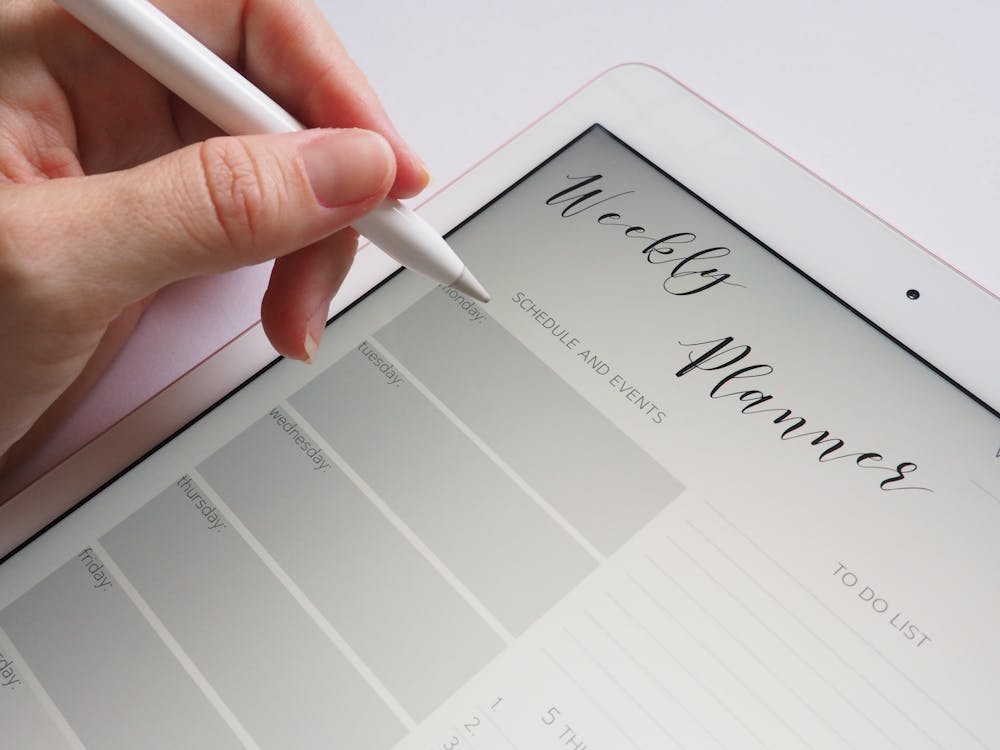5 study tips for national examinations
For all O-Level and A-Level students out there, the number of days leading up to the major exams is slowly decreasing. The sense of anxiety and fear may be within most of us. The journey is tough but that’s what makes the end more rewarding and meaningful.

1. Have a weekly planner
To start off, this is the most important habit that students have to start cultivating. As simple as it seems, it’s actually much harder than you think to commit to all tasks diligently without letting external factors distract us. While having a planner does not guarantee success, it is a life skill that can be brought over even to the working world. Besides, this also gives you an accurate assessment of your revision progress.
Take, for example, 100 days to your national exam. Through a planner, you can map out topics and content that you have yet to master. Then, you go about organizing a game plan to acquire the necessary content before the big day. It’s always good to plan ahead because you have ample time for practice.

2. Utilize memory techniques
Given the local context, there is still a substantial portion during examinations that requires us to regurgitate information that we have learned in school. As such, learning how to retain information is a key factor. Undeniably, it can be rather daunting for most students as the exam period spans over only a few weeks and there is little time for you to delegate each week for a specific subject. It’s common to have back to back papers for different subjects. Thus, students are expected to juggle between the different content. Hence, explore ways that help you remember more effectively and be receptive to changes. After all, the way you revise may not necessarily be the same as how your peers do it.

3. Teach others
This is also another approach for you to assess your current ability. When you teach others, you’re bound to be aware of what you know and what you need to work on. I’m sure students don’t go around teaching concepts to others that you innately aren’t familiar with. So, when you teach others what you are good at, you are able to hone your skills to a higher level and also fill in gaps that you may have missed out during your revision. Besides, as you are teaching, you are also practicing the application of the content that you have instead of just purely memorizing content and not knowing how to use them effectively to tackle questions.

4. Take breaks
Sometimes, students get themselves in the mood of being overly engrossed and they forget the importance of taking breaks between study sessions. The baseline that we have to understand is that quantity does not equate to quality.
For instance, try something different! Instead of having the mentality of setting hours of revision time that you have to fulfill for yourself, delegate each specific task to 45 minutes and 1 hour, and take breaks in between. As a matter of fact, our degree of concentration will gradually decrease over time. Hence, to maximize efficiency, switch around different subjects, and strive for a balance between rest time and study time.

5. Clarify doubts and participate in discussions
There will be times when you’re unsure of a particular concept. Don’t be afraid to ask questions! From personal experience, I have come to a realization that most students are rather hesitant to ask questions in class mainly due to their fear of asking something that everyone else already knows. My only advice for this is that maybe everyone else is equally unsure but they’re just afraid to ask too, so why don’t you just take the first step?
If you still struggle to ask questions in larger settings, consider engaging tutors. At Elite Tutor, we aim to provide one-on-one tutors for students to encourage personalized learning.
Believe it or not, in the working world, you have to learn to portray yourself with confidence for others to notice your potential. Sadly, if you keep most things to yourself and are only involved in absorbing information from others, you learn a lot less too!
Closing thoughts
At the end of the day, adopting a calm attitude is essential for national examinations. It is a stressful period and fear of exams is no stranger to most students. However, with calm and collected composure, one is better able to organize their thoughts and express their ideas in a timely manner.
If you have further clarifications, feel free to contact us at Elite Tutor and we would be happy to assist you!
Assignments
Follow us on Telegram
Get instant notification of new assignments via our Telegram channel at https://t.me/elitetutorsg
Like us on Facebook
Follow us on Instagram
Follow us on instagram over at https://www.instagram.com/elitetutor.sg